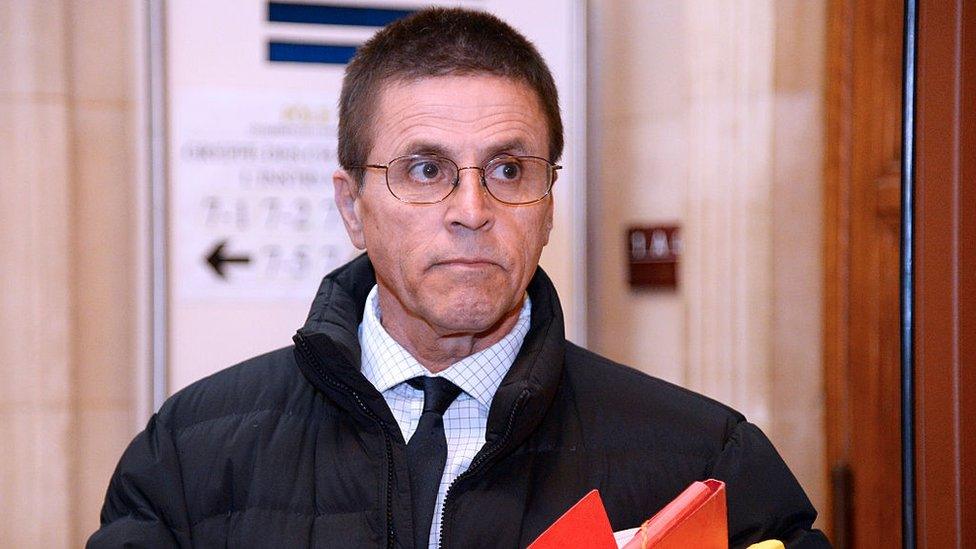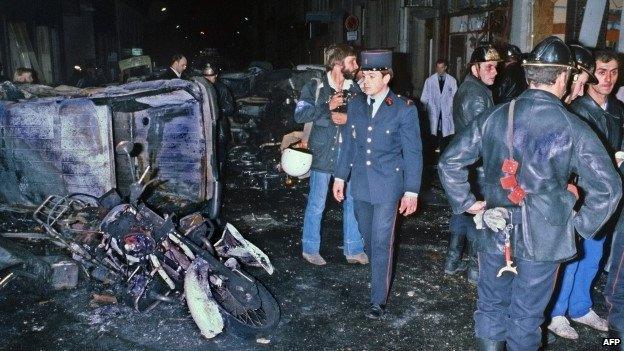Hassan Diab: Canadian academic to stand trial in French terrorism case
- Published

Mr Diab has long denied involvement with the 1980 bombing
A Canadian academic accused of a 1980 bombing outside a Paris synagogue will face trial in 2023, five years after he was freed due to lack of evidence.
France says Lebanese-born sociology professor Hassan Diab was a member of a Palestinian militant group and planted a bomb that killed four and wounded 40.
Last year, France's court of appeal overturned a lower court decision to release Mr Diab and allow his return to Canada after three years in prison.
Mr Diab has maintained his innocence.
French authorities have not yet requested Mr Diab's extradition to France in order to stand trial in person. His lawyers have told Canadian media he could be tried in absentia.
Mr Diab was first arrested by Canada's RCMP in 2008 and placed under strict bail conditions until his extradition to France in 2014. He spent three years in a French prison on charges of first-degree murder before the case was dropped.
The 67-year-old has insisted that he was in Lebanon at the time of the attack to write university exams, and several witnesses, as well as university documents, support his claim.
On Tuesday, members of the Hassan Diab Support Committee, including former secretary general of Amnesty International Canada, Alex Neve, decried the looming prosecution of Mr Diab as "surreal and disgraceful".
The committee also called for parliamentary intervention to change Canada's extradition agreement with France and prevent Mr Diab from being turned over to French authorities once again.
Asked about Mr Diab's case in 2018, Canadian Prime Minister Justin Trudeau supported him but he has not yet commented on the upcoming trial.
"It is time now for Prime Minister Trudeau and Justice Minister David Lametti to make it categorically clear that Canada will in no way participate in this cruel and misguided charade," Mr Neve said.
In May, France's top court denied Mr Diab's appeal, paving the way for next year's trial. At the appeal hearing, France's advocate general, a senior legal officer, sided with Mr Diab's defence team and argued for his release.
But French prosecutors have persisted in their case against Mr Diab, relying on evidence that linked his handwriting to that of the suspected bomber. This evidence has been disputed by Mr Diab's legal team.
Since his release, the former University of Ottawa professor has been living with his wife and two children in Canada's capital.
The trial is scheduled to start on 3 April, 2023.
- Published12 January 2018
